A tale of delivering relief to the most remote regions of Gilgit-Baltistan
Providing meals to the underprivileged a top priority amidst Covid-19?
1607674198-0/image-(1)1607674198-0-640x480.webp)
Karakoram range, the picturesque Kaghan Valley known for the crystalline waters of Lake Saiful Muluk, or the vibrant turquoise waters of Attabad lake nestled in Hunza valley, Pakistan encapsulates some of the most mesmerising sceneries that are beyond anyone’s wildest imagination.
In the recent years, Pakistan has garnered immense limelight when myriad tourists expressed their desire to visit the breathtaking places that have always enchanted the travellers, globally. This meant that Pakistan’s tourism industry, which was on the verge of a supposed revival, also became a victim of the havoc that has indiscriminately caused destruction and altered lives on a global level: the devastating Covid-19.
The virus has not only claimed the lives of millions of people, but it has also had a tenfold impact in most of the under-developed or developing countries; potentially paralysing an already tottering welfare and health care structure.
Defying all odds
Another embodiment of nature’s perfection, the Gilgit Baltistan district (GB), home to mighty mountain ranges, lakes and plateaus with rich fauna and flora, and known to be a paradise for scenic lovers and tourists, is also deeply affected by the pandemic.
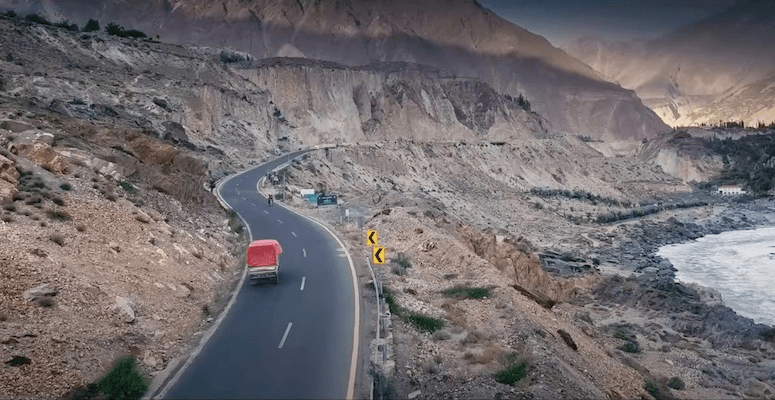
Factually, the distinctive element that tugs the heart of every foreigner who visits the country, apart from the insurmountable mountain vistas, is the welcoming nature and hospitality of Pakistani’s, regardless of their income or status. As the nation battles with the coronavirus outbreak, it makes us comprehend that ever since the lockdown, the situation has consistently been far worse for people residing in these mighty terrains, due to its precarious roads and harsh terrains.
Attributable to its rugged terrains, no matter what time of the year, climate in the land of Gilgit-Baltistan is exceptionally unpredictable and unreliable; thus making it difficult for the people to travel. Amidst bitter winters, avalanches and heavy snowfall hinder everyday life, forcing all economic activity of the area to a halt. While it compels some to migrate, most people keep themselves locked inside their homes for months. Whereas, in summers’ precisely, the torrential monsoon rains make accessing boroughs in Gilgit-Baltistan exceedingly challenging. Ordinarily, the perilous roads, submerged sceneries and disastrous landslides frequently make people shudder to sounds imitating massive explosions. Furthermore, dense fog makes ascertaining the situation impossible. Owing to the aforementioned reasons, commuting and reaching out to these areas can be relatively laborious.
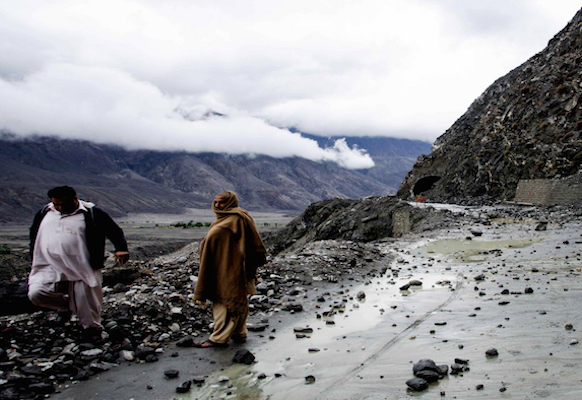
Covid-19: Fuelling hunger in Gilgit-Baltistan
It is undeniable that the worst affected out of the country's total population are the daily wage earners, and those who inhabit the unforgiving urban slums. Since most people residing in this remote region are day to day wage earners, these benevolent people have been unemployed ever since the epidemic’s inception, and now, amidst testing times are in dire need of compassion.
According to Mr Kamal Uddin, CEO, Mehnaz Fatima Foundation (MFF), since the beginning of the lockdown, a large chunk of GB's population was suffering relentlessly; some did not even have food to keep on their dinner tables, especially in remote areas with rugged terrains
Saviours to the rescue
In such demanding times, PepsiCo took responsibility over their shoulders, and vowed to extend a helping hand to the underprivileged via their philanthropic organisational wing.
This emergency disaster relief program is a nationwide operation, managed with the help of charitable organisations that are active on the ground at the grass root level. Pepsi has partnered with several charitable institutions, including the pre-eminent Mehnaz Fatima Foundation, in order to empower millions of dreams, and spread happiness by endowing immediate relief to a plethora of vulnerable people.
Empowering people through selfless deeds
'Millions of Meals' initiative has touched lives of innumerable people inhabiting in different expanses of the country, including some of the most inaccessible parts of Pakistan. During their fascinating, yet rigorous journey, PepsiCo dispersed around 13 million meals and impressively covered abut 90% localities of Pakistan, including unreachable and inaccessible places in Balochistan, Gilgit-Baltistan, Azad Jammu Kashmir and Khyber Pakhtunkhwa; the program strived to benefit as many communities as possible. This was attained with the assistance provided by philanthropic institutions such as Mehnaz Fatima Foundation, which generously delivered hundreds of nutritious meals to families settled in GB.
Being a local organisation, Mehnaz Fatima Foundation had an edge over other humanitarian institutions, as it was familiar with the vertiginous landscapes, and with the areas that are difficult to reach due to their topographical elements. Thus, it meant, the welfare foundation was able to spread goodness all over the Gilgit-Baltistan district.
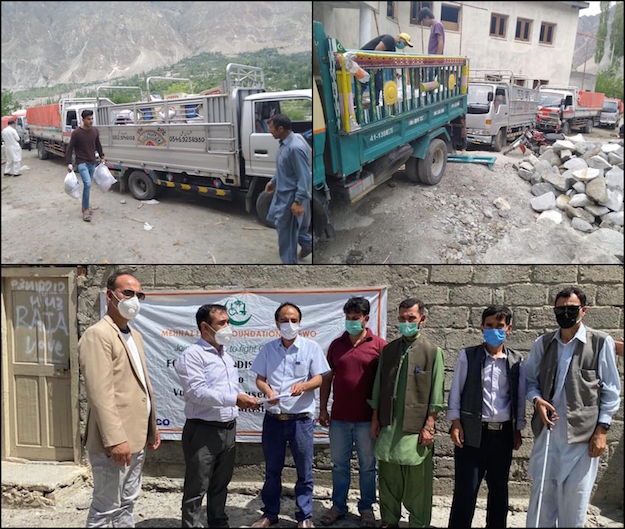
The duo, PepsiCo and Mehnaz Fatima Foundation principally worked together in the GB district’s inaccessible areas to provide rations to the underprivileged people of the region. Mehnaz Fatima Foundation is a dynamic, progressive and advanced nonprofit welfare plus learning organisation that is reaching out to inspire lives through the promotion of inclusivity. It aims to dispense sustainable development as well as emergency relief to vulnerable beings in the country.
By celebrating diversity, they strive to provide quality education for young and special needs children in a place known for its picturesque beauty and rough terrains. The NGO solely focuses on optimising overall development, as well as community awareness in the magnificent area known to be Gilgit-Baltistan.
1607675062-0/BeFunky-collage-(1)1607675062-0.jpg)
With this fortunate collaboration, the Mehnaz Fatima Foundation has managed to make the lives of 2500 helpless families living in the remote areas of GB a little easier by furnishing them with rations, so that no person has to go to bed on an empty stomach
The precarious task comprised of titanic challenges, but the Foundation was determined to attain its goal, and serve these compassionate people of GB via their selfless gesture. Mehnaz Fatima Foundation efficaciously covered five districts (Nagar, Ghizer, Hunza and Skardu), and distributed over one million meals to the individuals residing in these arduous rocky areas of GB.
Facilitated by hundreds of district officials and community leaders, the venture was applauded to such a degree that people are encouraging to start phase two of this meritorious initiative.
In these gruelling times where one cannot hold someone’s hand, or hug them, one should play their part in making someone’s life better in any capacity. Progress comes with unity, and although, the overall population of GB is approximately two million, but ensuring food security to even these 2500 households acted as a beacon of hope for them.”- Mr Kamal Uddin, CEO, Mehnaz Fatima Foundation
As Pakistanis, it is gratifying to see altruistic endeavours being performed in our country by nonprofit organisations such as Mehnaz Fatima Foundation on this level. Their commendable attempt truly gave us the harsh insights on how people living in these precipitous boroughs are coping with life, amidst the destructive pandemic. The remarkable drive carried by Mehnaz Fatima Foundation has beyond doubt shaken us, leaving behind lessons of a lifetime. It has profoundly left us wanting to be more empathetic towards those around us. We sure hope in the future to see such ventures at this magnitude being carried out by other foundations, given that Covid-19 is recurring as a second wave.
"We can't heal the world today but we can begin with a voice of compassion, a heart of love, an act of kindness." Mary Davis

1652263624-0/download-(1)1652263624-0-100x90.webp)
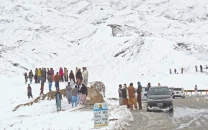
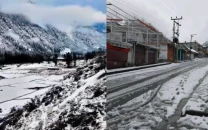


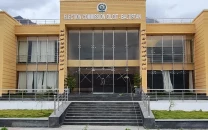












COMMENTS
Comments are moderated and generally will be posted if they are on-topic and not abusive.
For more information, please see our Comments FAQ